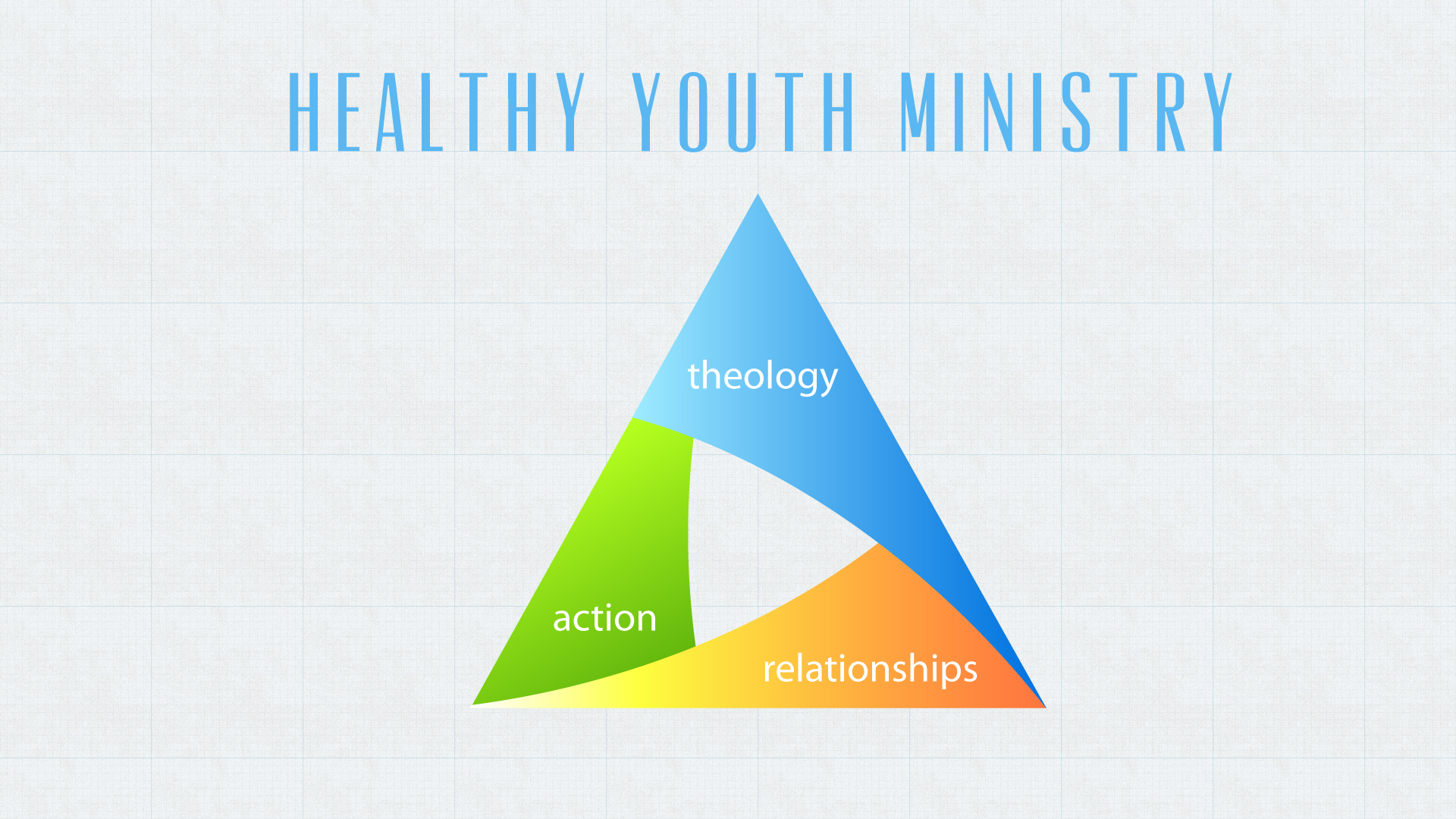 What makes a youth ministry healthy? Is it the amount of people that are attending the events? Is it the depth of the teaching that is happening? Anyone who is in ministry certainly wants to make sure their ministry is healthy, but what does that look like. What makes our gathering of teenagers different than any other after-school activities?
What makes a youth ministry healthy? Is it the amount of people that are attending the events? Is it the depth of the teaching that is happening? Anyone who is in ministry certainly wants to make sure their ministry is healthy, but what does that look like. What makes our gathering of teenagers different than any other after-school activities?
Mark Senter III in the book Reaching a Generation for Christ writes, "When youth ministries are healthy, they have retained a balance among relational dynamics, theological thinking, and a bent for action - which in turn shapes a system of discipleship."
Healthy Student Ministry:
1. Theology. Teaching is a critical component of youth ministry. This doesn't necessarily mean education or preaching; teaching theology happens in many forms and fashions. Teaching might happen by the example of leaders. Teaching certainly happens as a leader opens up the Bible and proclaims truth. Teaching might happen as a small group leader guides a conversation around a passage of scripture. Because the point of youth ministry is students growing in their relationship with Jesus, teaching is an important part of that. We can certainly eliminate teaching, but as soon as that happens we are no more than a Boys & Girls Club, which might offer relationships and seek to make a difference in the community, but doesn't care about kids meeting Jesus.
2. Relationships. If we solely focus on educating students and ignore relationships, we are more like a seminary than a youth ministry. Relationships are fundamental to youth ministry. We often proclaim to our volunteers, "Students won't think theologically until they are comfortable socially." The relationships that are formed between leaders and students, between leaders and leaders, and between students and students are absolutely critical to the health of the ministry.
3. Purposeful action. If we have solid, doctrinal teaching and quality relationships, we can still fail to be a healthy student ministry. In fact, having great relationships and good teaching might lead us to be a great "youth group." Unfortunately a group that loves Jesus but only exists for those within the group is certainly not healthy. A healthy youth ministry not only has great teaching and great relationships, but it seeks to make a difference in the lives of those around them. A healthy youth ministry is active, a not simply active doing "stuff," but active doing things with a purpose. Active doing things that make help push kids deeper, encourage them to live out their faith in their schools, and challenge them to live out the great commission.
Each one of these things is important if you are going to have a healthy student ministry. If one is missing, your student ministry will either cease to be healthy or cease to be a ministry. We can eliminate teaching and become a social gathering. We can eliminate relationships and become an educational institution. We can eliminate purposeful action and we become a youth group and not a youth ministry.
Which of these comes easiest for you? Which is most difficult?
